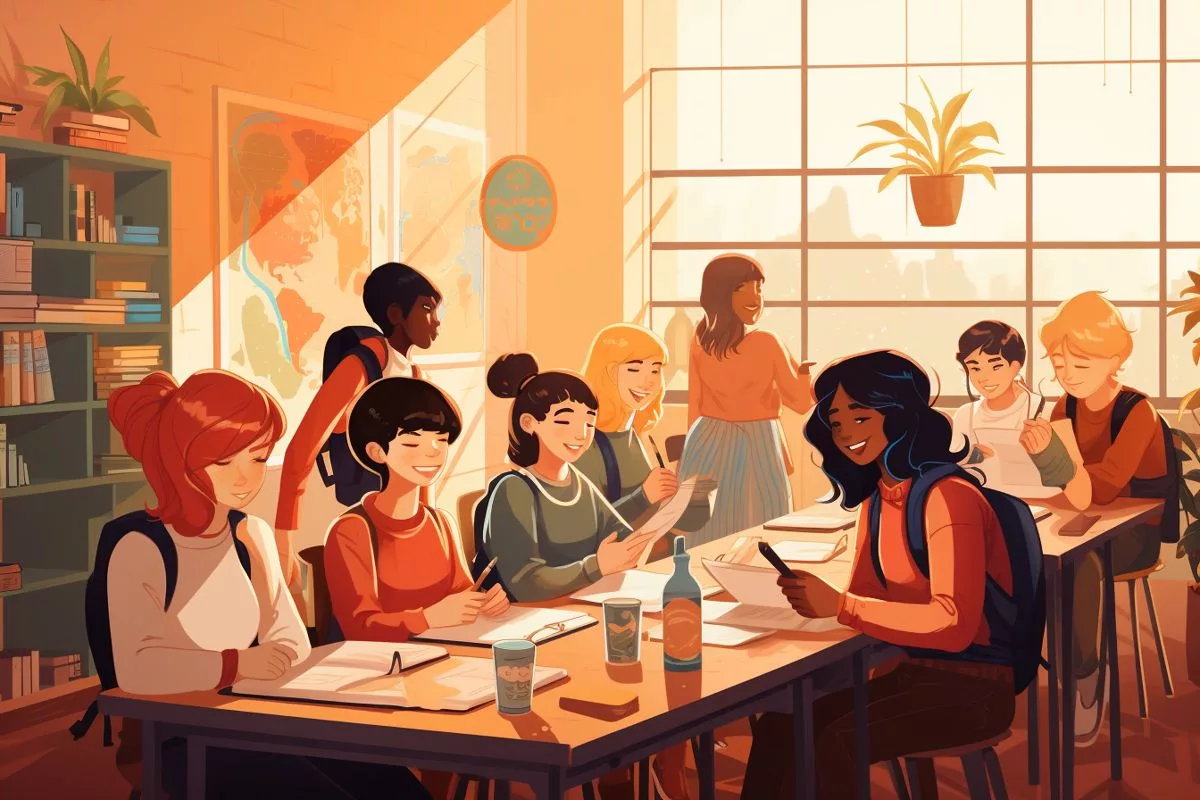South Africa’s education system is getting a revamp through the Basic Education Laws Amendment (BELA) Bill, which focuses on making the system more inclusive, equitable, and efficient. The bill addresses administrative challenges such as admissions policies and financial accountability systems while promoting inclusivity for learners with special needs. Despite controversy surrounding false information about the bill, it remains a vital step in transforming the country’s basic education landscape and laying the groundwork for a more equitable and efficient education system.
What is the BELA Bill and how does it aim to revamp South Africa’s basic education system?
The Basic Education Laws Amendment (BELA) Bill aims to make South Africa’s basic education system more inclusive, equitable, and efficient. It suggests changes to the South African Schools Act (SASA) and the Employment of Educators Act (EEA) to keep up with the evolving educational landscape and uphold the constitutional right to basic education. The bill addresses administrative challenges such as admissions policies and financial accountability systems, and promotes inclusivity for learners with special needs.
The Basic Education Laws Amendment (BELA) Bill, introduced in 2017, aims to revamp South Africa’s basic education system by making it more inclusive, equitable, and efficient. The bill suggests changes to the South African Schools Act (SASA) and the Employment of Educators Act (EEA) to keep up with the evolving educational landscape and uphold the constitutional right to basic education.
The Department of Education underwent a significant change in 2009 when it split into two separate entities: the Department of Basic Education and the Department of Higher Education and Training, as per Proclamation No. 44. This marked the beginning of a new chapter for education in South Africa.
The BELA Bill’s goals are firmly rooted in the best interests of both learners and educators. Key areas of focus include making Grade R mandatory, incorporating court judgments related to the Bill of Rights, establishing financial and public accountability systems, and tackling administrative issues such as admissions policies.
Addressing Administrative Challenges
The BELA Bill focuses primarily on administrative processes within schools and the department, rather than on matters related to the curriculum, human resources, infrastructure, or inclusive education for students with special needs. Spanning 56 clauses, the bill addresses topics such as introducing Grade R, consolidating schools, and abolishing corporal punishment in an effort to adapt the education system to current demands.
A significant issue the BELA Bill addresses is the determination of a school’s language and admission policies. Contrary to widespread belief, the bill does not seek to undermine the autonomy of School Governing Bodies (SGBs). Instead, it aims to balance their authority with the guidance of the relevant provincial Head of Department (HOD). While SGBs are initially responsible for setting a school’s language policy, the BELA Bill ensures that their power is not unchecked. The bill’s purpose is to guarantee that these policies are flexible, inclusive, and in line with the constitutional right to basic education.
Furthermore, the BELA Bill clarifies misunderstandings about home-schooling. Parents who choose to home-school their children have expressed concerns that the bill might infringe upon their parental rights to raise their children according to their cultural and religious beliefs. The bill’s primary purpose, however, is to ensure the registration of home-schooled children, not to impose limitations on home-schooling practices.
Debates and the Future of the BELA Bill
The debate around the BELA Bill has become entangled in racial and political conflicts. Some political parties and Parliament members have spread false information, dubbing the bill an “Abortion Bill” and accusing the Minister of permitting teachers to take pregnant girls for abortion. The term abortion is not mentioned in the bill, and decisions about pregnancy termination fall under the Department of Health’s purview, not the education department.
Despite the controversy surrounding it, the BELA Bill remains a vital step in transforming South Africa’s basic education landscape. The bill addresses the shifting demographics of communities, court findings, and observations gathered through school monitoring. By tackling administrative challenges and promoting inclusivity, the BELA Bill lays the groundwork for a more equitable and efficient education system in South Africa.
1. What is the BELA Bill and what does it aim to achieve?
The BELA Bill is a proposed amendment to South Africa’s education laws that aims to make the basic education system more inclusive, equitable, and efficient. It suggests changes to the South African Schools Act (SASA) and the Employment of Educators Act (EEA) to keep up with the evolving educational landscape and uphold the constitutional right to basic education.
2. What are the key focus areas of the BELA Bill?
The key focus areas of the BELA Bill include making Grade R mandatory, incorporating court judgments related to the Bill of Rights, establishing financial and public accountability systems, and addressing administrative issues such as admissions policies.
3. What administrative challenges does the BELA Bill address?
The BELA Bill focuses primarily on administrative processes within schools and the department, rather than on matters related to the curriculum, human resources, infrastructure, or inclusive education for students with special needs. Spanning 56 clauses, the bill addresses topics such as introducing Grade R, consolidating schools, and abolishing corporal punishment in an effort to adapt the education system to current demands.
4. How does the BELA Bill address admission policies and language policies?
A significant issue the BELA Bill addresses is the determination of a school’s language and admission policies. It aims to balance the authority of School Governing Bodies (SGBs) with the guidance of the relevant provincial Head of Department (HOD). While SGBs are initially responsible for setting a school’s language policy, the BELA Bill ensures that their power is not unchecked. The bill’s purpose is to guarantee that these policies are flexible, inclusive, and in line with the constitutional right to basic education.
5. Does the BELA Bill aim to limit parents’ rights to home-school their children?
No, the BELA Bill does not aim to limit parents’ rights to home-school their children. The bill’s primary purpose is to ensure the registration of home-schooled children, not to impose limitations on home-schooling practices.
6. Has the BELA Bill faced any controversy?
Yes, the BELA Bill has faced controversy, with some political parties and Parliament members spreading false information, dubbing the bill an “Abortion Bill” and accusing the Minister of permitting teachers to take pregnant girls for abortion. The term abortion is not mentioned in the bill, and decisions about pregnancy termination fall under the Department of Health’s purview, not the education department.
7. What is the future of the BELA Bill?
Despite the controversy surrounding it, the BELA Bill remains a vital step in transforming South Africa’s basic education landscape. The bill addresses the shifting demographics of communities, court findings, and observations gathered through school monitoring. By tackling administrative challenges and promoting inclusivity, the BELA Bill lays the groundwork for a more equitable and efficient education system in South Africa.
8. What other changes have been made to South Africa’s education system in recent years?
In 2009, the Department of Education split into two separate entities: the Department of Basic Education and the Department of Higher Education and Training, as per Proclamation No. 44. This marked the beginning of a new chapter for education in South Africa.








